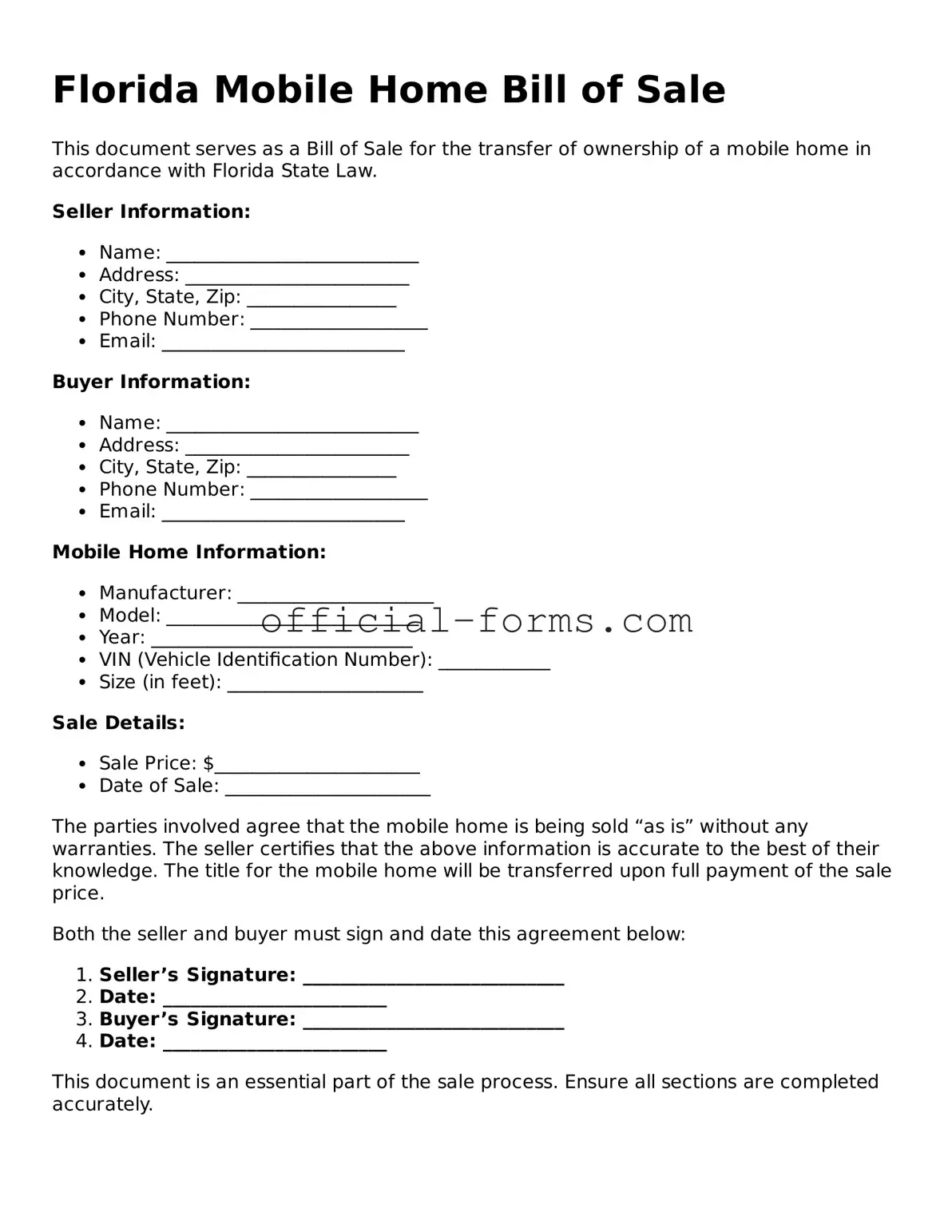Official Florida Mobile Home Bill of Sale Document
The Florida Mobile Home Bill of Sale form is a legal document that records the sale and transfer of ownership of a mobile home in Florida. This form serves as proof of the transaction between the seller and the buyer, ensuring that both parties have a clear understanding of the terms. Understanding this form is essential for anyone involved in buying or selling a mobile home in the state.
Open My Mobile Home Bill of Sale Now

Official Florida Mobile Home Bill of Sale Document
Open My Mobile Home Bill of Sale Now
Don’t leave your form incomplete
Finish Mobile Home Bill of Sale online quickly from start to download.
Open My Mobile Home Bill of Sale Now
or
➤ PDF
